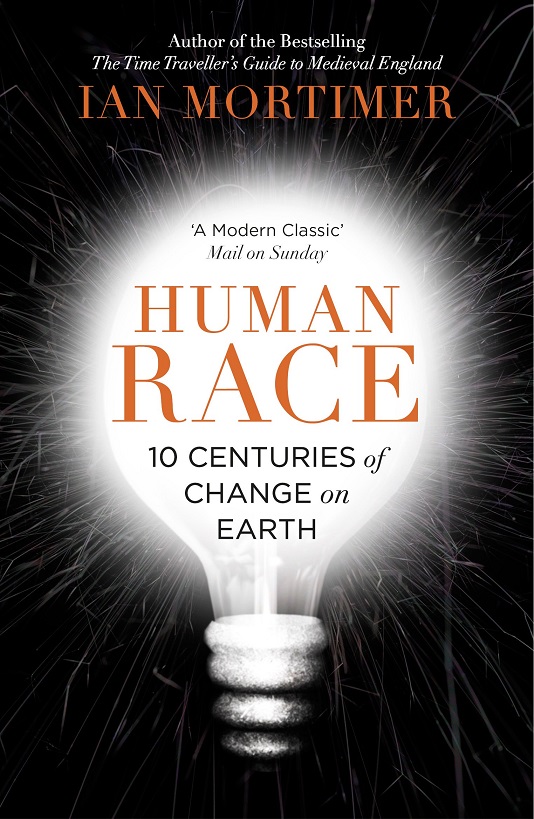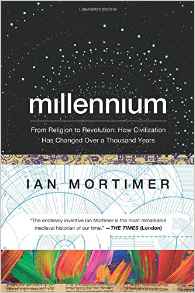Human Race (UK)
Millennium (USA)
(UK hardback published as 'Centuries of Change')
At the end of December 1999 I heard a TV newsreader declare that the twentieth century was 'the century that has seen more change than any other'. This set me thinking. Was it? After all, in 1900, most people in the Western World lived pretty much as I did. They wore suits, went to school, could read and write, and knew that the world was round and that it orbited the Sun. They did not starve to death, had the benefit of medicine, voted for their government, and generally they did not condone slavery or cruelty to animals and children. The big changes all lay in the more distant past.
At that moment I asked myself the question underpinning this book. What were the major changes of each of the previous nine centuries? Which developments, movements and inventions most profoundly affected the Western World?
Images came flooding to mind: of the printing press, Columbus's voyages, Luther's Ninety-Five Theses, the French Revolution, railways and the telephone. But at the same time, I realised that this was a very particular question, requiring more thought than the usual 'greatest inventions' sort of book. This was not just about positive progress but change - negative as well as positive. What we have lost as well as what we have gained. Moreover, the changes themselves had to be measured not in terms of brilliance but impact. The printing press, for example, did not change the world. If society is predominantly illiterate, the machine is nigh on useless. It was the publication of the Bible in the vernacular which provided the impact - putting the word of God into the hands of ordinary people and, for the first time, encouraging large numbers of women to read, and thus to empower themselves.
Over the years since 1999 I have discussed the concept regularly and have observed that most people equate change with one of five twentieth-century technological innovations: flight, the atomic bomb, the computer, the Internet and the mobile phone. (You would not believe how many people have declared to me that the mobile phone is the most significant change of the last thousand years.) You would have thought that people might spare a thought for the abolition of slavery, the Black Death, and the introduction of gunpowder. But no. What was the biggest change of the eleventh century? And the eighteenth? Forget patriotic wars, kings and politicians: these things should the bedrock of any meaningful historical education.
And at the end of the exercise, when you have considered the changes in each century and compared them, which one emerges as the most significant? And what does the conclusion imply for the next few centuries?
You could say that it's my idea of what a basic historical education should include. Everything you really need to know about the past - plus a few things you really need to know about the future.
- Synopsis
- Short interview about the book for the Daily Telegraph
- Writing the book
- Brief animated introduction to the book
- Reviews
- UK publisher's website
- USA publisher's website
- UK audiobook (narrated by Mike Grady, with the envoi read by the author)
- USA audiobook (narrated by John Lee)
- Original hardback cover image
 |
 |